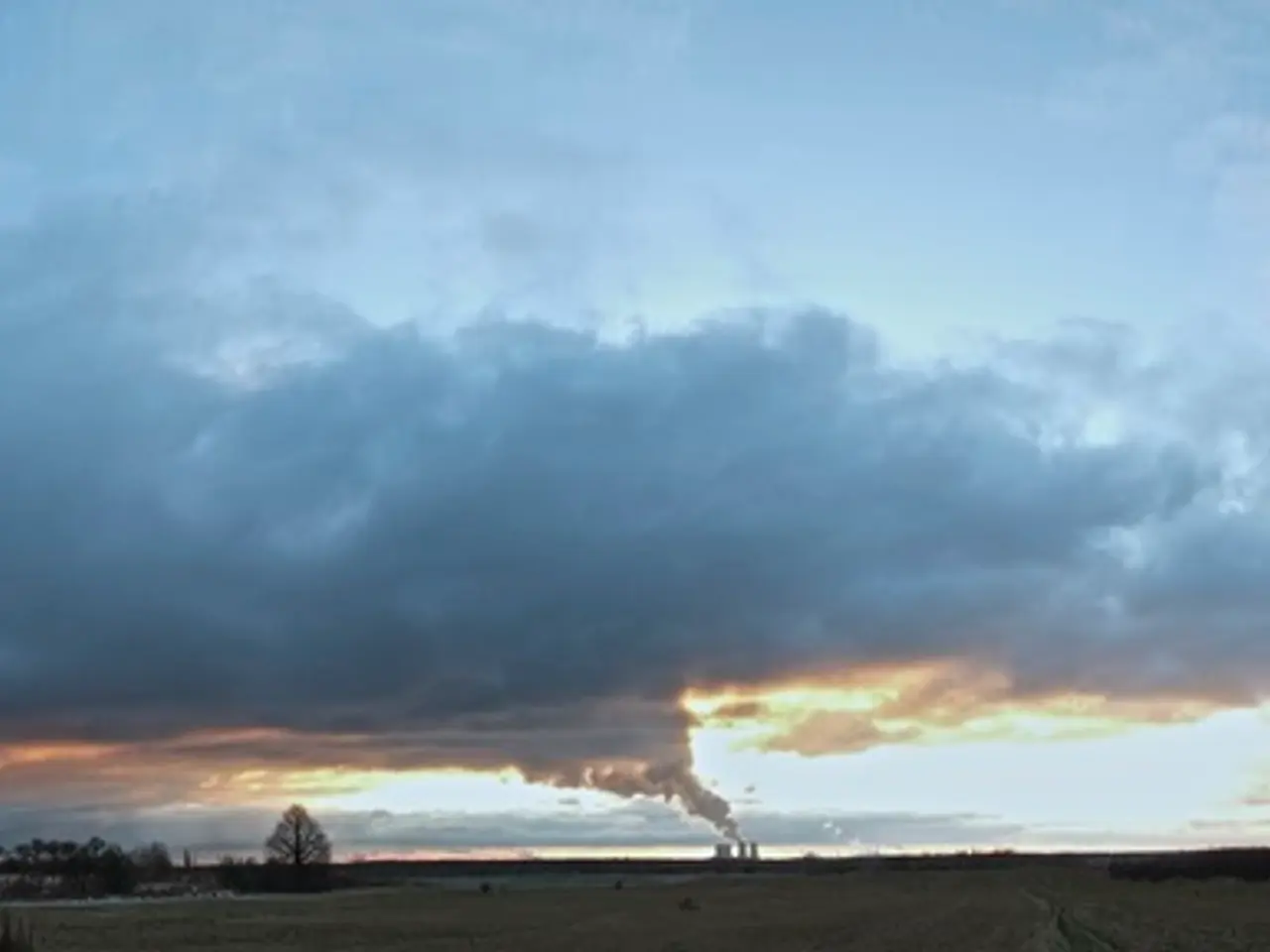International Battle Against Cross-Border Smog in Thailand and Cloud Seeders
In the bustling city of Bangkok, air pollution levels continue to rise each year, posing a significant threat to public health. The issue has become so severe that parents are sending their children to school wearing masks, and schools across 31 districts have been closed due to the high pollution levels.
The Thai government is taking steps to combat air pollution, implementing a range of measures and solutions. One of the key initiatives is the Clean Air Act, a draft law aimed at regulating emissions from factories, agriculture, and transportation. However, the act's full implementation has been delayed due to political inertia and lobbying by powerful interests.
During severe smog events, emergency measures are put in place. Authorities enforce temporary school closures, restrictions on truck movements, and provide subsidised public transport to reduce pollution exposure and traffic congestion in cities like Bangkok. Despite these efforts, the PM 2.5 levels in Bangkok have recently reached eight times the World Health Organization's recommendation, making it the fourth most polluted city in the world this month.
The government also advises citizens to wear N95 masks, stay indoors with windows closed, limit outdoor exposure, and exercise indoors during high pollution episodes. However, air quality monitoring remains a concern, with some local communities taking matters into their own hands and setting up monitoring stations in highly polluted areas.
Legal enforcement against open burning is another key measure, as agricultural and forest fires contribute significantly to the pollution problem. New laws hold individuals accountable for agricultural and forest fires, but enforcement remains weak, and burning persists as a cheap land-clearing method.
Advocacy groups are also focusing on the impact of air pollution on vulnerable populations, particularly children. Children’s health and education are priorities, emphasizing the need for safe environments such as schools and playgrounds. Some private schools have installed air purifiers, though most public schools lack such protections.
The government is also trying to counter traffic pollution by offering free public transport. Additionally, the "rainmaker" plane is being used to drop icy water over polluted areas in an attempt to cool down the warm air and disperse pollutants. However, critics argue that the "rainmaker" solution is unconventional and unproven.
Regional pollution from neighbouring countries, such as China and India, also contributes to the haze in Bangkok. Holding big agricultural companies accountable will be key to improving the pollution situation in Thailand.
In conclusion, Thailand’s current approach involves legislative frameworks, emergency pollution control during peak smog periods, public health advisories, and advocacy for more monitoring and child-focused protection. However, the effectiveness of these measures is hindered by enforcement gaps and political challenges. Clean air should be a universal right, but in Bangkok and many other parts of Thailand, pollution remains a concern for the health of children's lungs long term.
[1] UNICEF Report on Air Pollution and Child Health in South East Asia and the Pacific (2021) [2] World Health Organization Report on Air Quality and Health in Thailand (2020) [3] Thailand's Environment Ministry Report on Air Pollution and Mitigation Strategies (2022)
- The Clean Air Act, a draft law in Thailand, targets regulating emissions from factories, agriculture, and transportation to combat air pollution, but its full implementation has been delayed due to political inertia and lobbying by powerful interests.
- With air quality monitoring remaining a concern, some local communities in Thailand have set up monitoring stations in highly polluted areas.
- Advocacy groups in Thailand are emphasizing the impact of air pollution on vulnerable populations, particularly children, as children’s health and education are priorities, highlighting the need for safe environments such as schools and playgrounds.
- Critics argue that the "rainmaker" solution, which involves using a plane to drop icy water over polluted areas in an attempt to cool down the warm air and disperse pollutants, is unconventional and unproven.
- Holding big agricultural companies accountable from neighboring countries, such as China and India, will be key to improving the pollution situation in Thailand and ensuring clean air becomes a universal right for children's health in the long term. (References: [1] UNICEF Report on Air Pollution and Child Health in South East Asia and the Pacific (2021), [2] World Health Organization Report on Air Quality and Health in Thailand (2020), [3] Thailand’s Environment Ministry Report on Air Pollution and Mitigation Strategies (2022))




